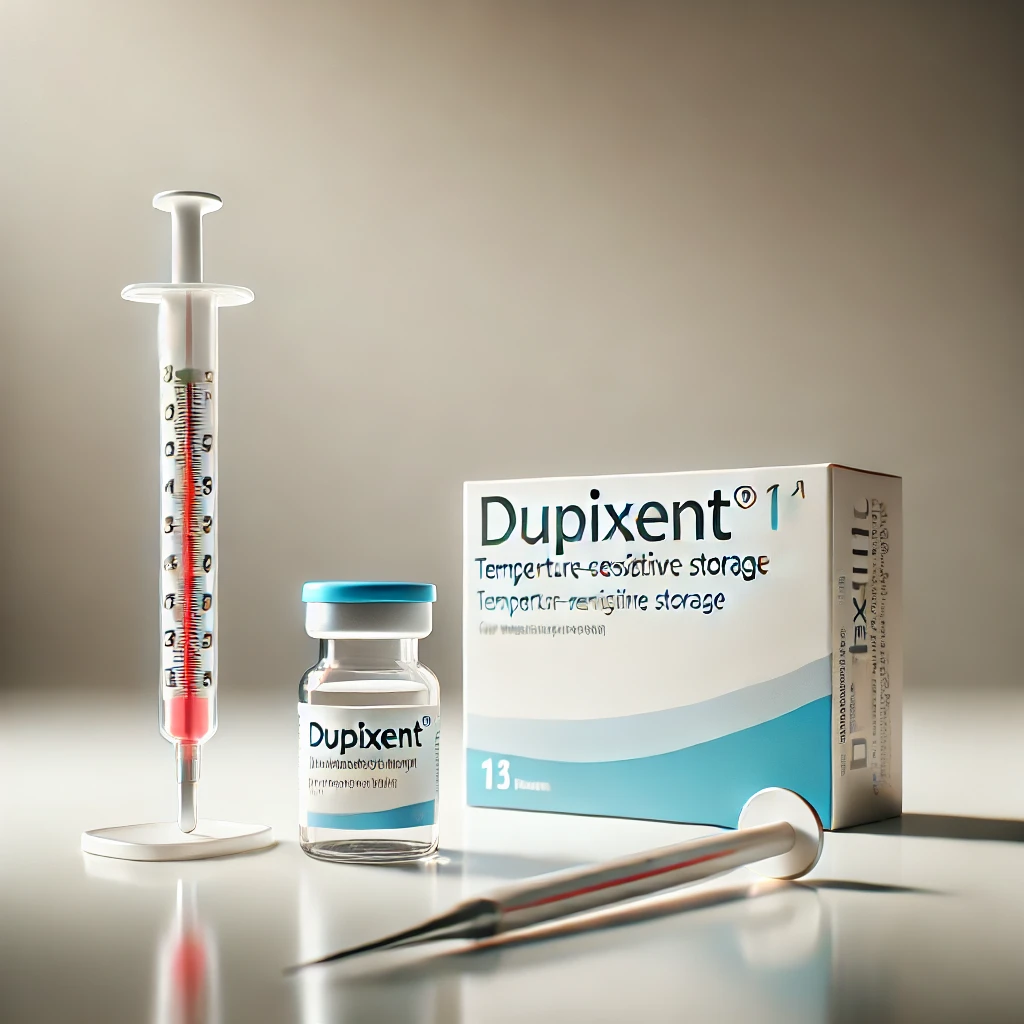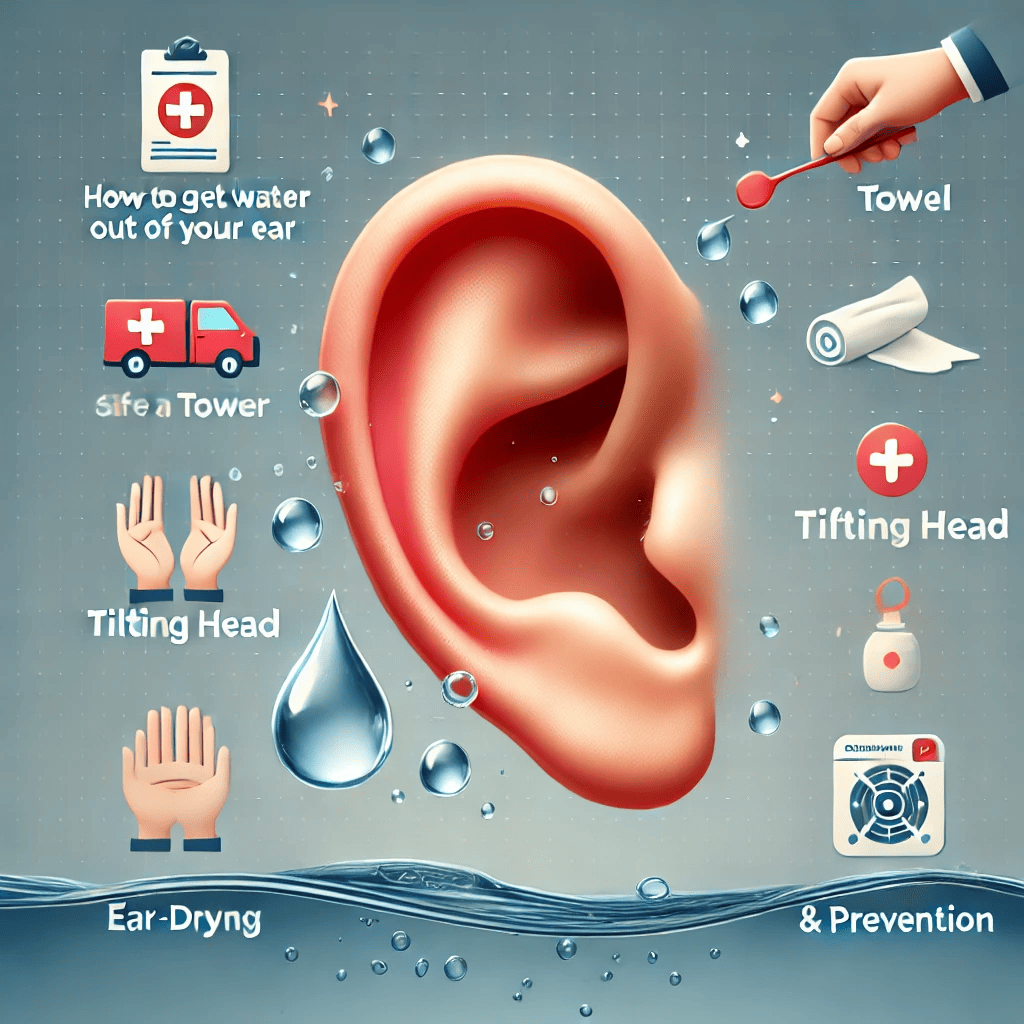How Long Can Dupixent Stay Out of the Fridge? A Complete Storage Guide for Optimal Safety
Dupixent is an injectable medication used to treat conditions like eczema, asthma, and other inflammatory conditions. Given its sensitivity, it’s essential to know how to store it properly and understand what happens if it’s left out of the fridge.
1. What Is Dupixent and Why Does Storage Matter?
Dupixent, or dupilumab, is a biologic drug that helps reduce inflammation. Since it contains active proteins that can be sensitive to temperature changes, keeping it stored correctly is vital for its effectiveness.
- Why Temperature Matters: Dupixent’s active ingredients can degrade if exposed to incorrect temperatures, making it less effective or potentially unsafe.
- Refrigeration Requirements: Manufacturers recommend storing Dupixent at a consistent temperature between 36°F and 46°F (2°C and 8°C).
Quick Fact: Proper storage is essential to maintain the medication’s potency and effectiveness.
2. How Long Can Dupixent Stay Out of the Fridge?
If Dupixent is accidentally left out of the fridge, it may still be usable if certain conditions are met.
- Maximum Room Temperature Duration: Dupixent can remain at room temperature (up to 77°F or 25°C) for a maximum of 14 days. Beyond this, it should be discarded.
- Refrigeration After Exposure: Once Dupixent reaches room temperature, it should not be refrigerated again. This prevents potential degradation due to temperature fluctuations.
Example: If you remove a Dupixent pre-filled syringe from the fridge on January 1st, it should be used by January 14th at the latest, assuming it stays at a stable room temperature.
3. Why Dupixent Should Not Be Frozen?
Freezing Dupixent can damage the active proteins and reduce the medication’s effectiveness.
- Impact of Freezing: Freezing alters the molecular structure, which affects how Dupixent interacts with the body. Even if it thaws, it won’t be as effective.
- Storage Tip: Always keep Dupixent in the fridge, away from the freezer section, to avoid accidental freezing.
Quick Insight: Keeping medications in the correct part of the fridge (not too close to the freezer) ensures they stay effective and safe to use.
4. What to Do if Dupixent Is Left Out Too Long?
If Dupixent is left out for more than the recommended 14 days, it should be disposed of properly.
- Safety Precaution: Using medication that has been stored improperly can lead to reduced effectiveness or unexpected side effects.
- Disposal Instructions: Dispose of Dupixent according to local guidelines, and avoid flushing or pouring it down the drain. Many pharmacies offer safe disposal options.
Example: If Dupixent is left out for over 14 days by mistake, contact your healthcare provider for advice and follow disposal guidelines to avoid any health risks.
5. Ideal Conditions for Storing Dupixent at Home
Maintaining the right storage environment for Dupixent helps ensure its safety and potency.
- Store in the Original Packaging: Keep Dupixent in its original box to protect it from light, which can degrade its active components.
- Use a Designated Medication Area: Store it in the main body of the fridge, where the temperature is most stable.
- Avoid the Refrigerator Door: The temperature in the door section fluctuates more than the main compartment, which can affect the medication.
Tip: If you’re storing multiple medications, designate a specific shelf or container in the fridge to avoid accidental freezing or exposure to fluctuating temperatures.
6. What to Do if You’re Traveling with Dupixent
Traveling with temperature-sensitive medications like Dupixent requires careful planning.
- Use an Insulated Cooler: Keep Dupixent in an insulated cooler bag with ice packs, ensuring it stays between 36°F and 46°F.
- Check Airline Regulations: If flying, verify the airline’s rules on carrying medication and consider bringing a note from your healthcare provider.
- Keep It Accessible: Always keep Dupixent in your carry-on bag to avoid temperature fluctuations in checked luggage.
Example: If you’re flying internationally, use a TSA-compliant cooler bag with ice packs to maintain Dupixent’s temperature and ensure its efficacy.
7. Important Considerations for Dupixent Storage in Warmer Climates
In regions where temperatures often exceed 77°F (25°C), extra precautions are necessary to maintain Dupixent’s stability.
- Consider a Portable Fridge: A mini-fridge or portable medication cooler can help keep Dupixent cool, especially in places without consistent air conditioning.
- Use Ice Packs Cautiously: Avoid placing ice packs directly against Dupixent, as extreme cold can freeze it. Instead, create a buffer with a cloth.
- Plan for Power Outages: Keep Dupixent in a cooler with ice packs if a power outage occurs to maintain its temperature.
Quick Tip: If you live in a hot climate, consider investing in a small, stable refrigerator specifically for storing medications like Dupixent.
8. Why Following Dupixent Storage Instructions Matters?
Proper storage not only keeps Dupixent effective but also minimizes potential health risks.
- Maintains Medication Potency: Dupixent’s efficacy relies on stable storage, ensuring consistent treatment for conditions like eczema or asthma.
- Reduces Health Risks: Misstored medication may not deliver the intended benefits, potentially leading to flare-ups or insufficient symptom control.
- Ensures Safe Usage: Following storage guidelines helps ensure Dupixent remains safe and functional, avoiding unnecessary health complications.
Fact: Biologic medications like Dupixent are particularly sensitive to temperature and light, making proper storage critical for safety.
9. What Happens if Dupixent Exceeds Room Temperature?
If Dupixent is exposed to temperatures higher than 77°F (25°C), it’s crucial to assess the duration and conditions of the exposure:
- Brief Exposure: Dupixent may remain stable if it’s exposed to slightly higher temperatures for a brief period (e.g., an hour or two), but this should not be a regular occurrence.
- Extended High Temperature: If Dupixent stays above 77°F for an extended time (such as a few hours or more), it may lose effectiveness. It’s safer to dispose of it rather than risk taking compromised medication.
Example: If you accidentally leave Dupixent in a warm car for over an hour, especially in hot weather, consult a pharmacist or healthcare provider before using it.
10. How to Store Dupixent During Short Outings or Errands?
If you need to take Dupixent with you for a short time, such as while running errands or traveling to an appointment, follow these tips:
- Insulated Bag with Ice Pack: Place Dupixent in an insulated bag with an ice pack. Be sure the ice pack isn’t touching the medication directly to prevent freezing.
- Use a Cooler Sleeve: A cooler sleeve can provide extra insulation, helping Dupixent remain at a stable temperature.
- Limit Time Outside: Plan errands to minimize Dupixent’s exposure outside a controlled environment. If possible, keep it in a shaded, cool area.
Tip: Carry a thermometer in your cooler bag if you often travel with temperature-sensitive medications to monitor their storage conditions.
11. How to Know if Dupixent Has Gone Bad?
Since Dupixent is a biologic, it may show signs if it’s been compromised, though this isn’t always visually obvious.
- Color and Clarity: Dupixent should be clear to slightly yellow. If it appears cloudy or has visible particles, it’s best to discard it.
- Expiration Date: Even when stored correctly, avoid using Dupixent past its expiration date.
- Temperature Log: Keeping track of Dupixent’s exposure time at room temperature can help you gauge its usability.
Quick Insight: If you have any doubts about Dupixent’s integrity, consult a healthcare provider to ensure safe use.
12. The Importance of Using Dupixent as Prescribed
Adhering to your prescribed Dupixent schedule is vital for managing chronic conditions effectively.
- Missed Doses: If Dupixent spoils due to improper storage, missing a dose can affect your condition. Plan ahead to avoid storage issues.
- Health Impact: Regular doses help keep symptoms in check, minimizing the chance of flare-ups or health deterioration.
- Adherence Tools: Consider setting reminders or using a medication management app to stay on track with your Dupixent regimen.
Fact: Missing or delaying Dupixent doses can make chronic conditions harder to manage over time, highlighting the importance of proper storage.
13. Frequently Asked Questions About Dupixent Storage
Can I Use Dupixent That’s Been Left Out Overnight?
No, Dupixent should not be used if left out overnight, as it exceeds the safe 14-day room temperature limit and risks being compromised.
Is It Okay to Use Dupixent Past Its Expiration Date?
No, using expired Dupixent is not recommended, as its effectiveness may be reduced and safety could be compromised.
Can Dupixent Be Stored in a Portable Mini-Fridge?
Yes, Dupixent can be stored in a portable mini-fridge if it maintains a stable temperature between 36°F and 46°F (2°C and 8°C). Be sure the mini-fridge is reliable and monitored.
14. Practical Tips for Safe Dupixent Storage
- Label with Date: If Dupixent is taken out of the fridge, label it with the date so you can keep track of its 14-day room temperature allowance.
- Set Fridge Reminders: Set reminders to check Dupixent’s storage if your fridge or mini-fridge has known fluctuations in temperature.
- Emergency Backup: Consider keeping an extra Dupixent dose in case one is accidentally compromised. Talk to your healthcare provider about obtaining a backup dose if feasible.
Example: When you remove Dupixent from the fridge, use a marker to label it with the date. This makes it easier to track how long it’s been at room temperature.
15. Environmental Considerations: Disposing of Expired or Compromised Dupixent Safely
Improperly disposing of expired or compromised medication can impact the environment. Follow these disposal tips to minimize harm:
- Pharmacy Take-Back Programs: Many pharmacies accept expired or unused medication for safe disposal.
- Avoid Flushing: Flushing medication can introduce it into the water supply, potentially harming the environment.
- Check Local Disposal Regulations: Some areas have specific disposal sites for medications, especially biologics.
Tip: When disposing of Dupixent, place it in a sealed bag or container to prevent accidental leaks or exposure.
16. Conclusion: Keeping Dupixent Safe and Effective
Storing Dupixent properly is key to maintaining its effectiveness and ensuring safe usage. By following these storage tips, handling it carefully when traveling, and knowing the signs of compromised medication, you can confidently manage your Dupixent treatment plan.
Key Takeaways:
- Keep Dupixent refrigerated until ready to use.
- If left at room temperature, use within 14 days.
- Never freeze Dupixent or use it if it’s been frozen.
- Dispose of unused or compromised medication safely.
By staying informed on storage practices, you’ll get the most out of your Dupixent treatment, ensuring it remains effective and safe for use.
Share Your Thoughts – We Value Your Feedback!
Thank you for exploring our guide on How Long Can Dupixent Stay Out of the Fridge. We hope it answered all your questions and helped you feel more confident about safely storing your medication. Did you find everything you needed? Or is there something more you’d like us to cover?
We’d love to hear from you! Share your feedback, thoughts, or additional questions in the comments below. Whether it’s about How Long Can Dupixent Stay Out of the Fridge or any related topic, your input helps us improve and provide even better, more helpful content. Your satisfaction is our top priority!




